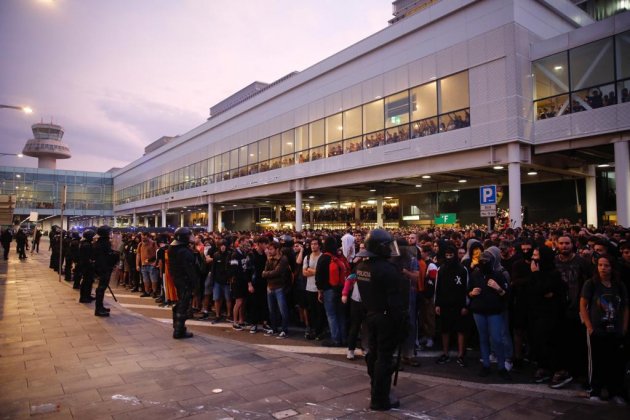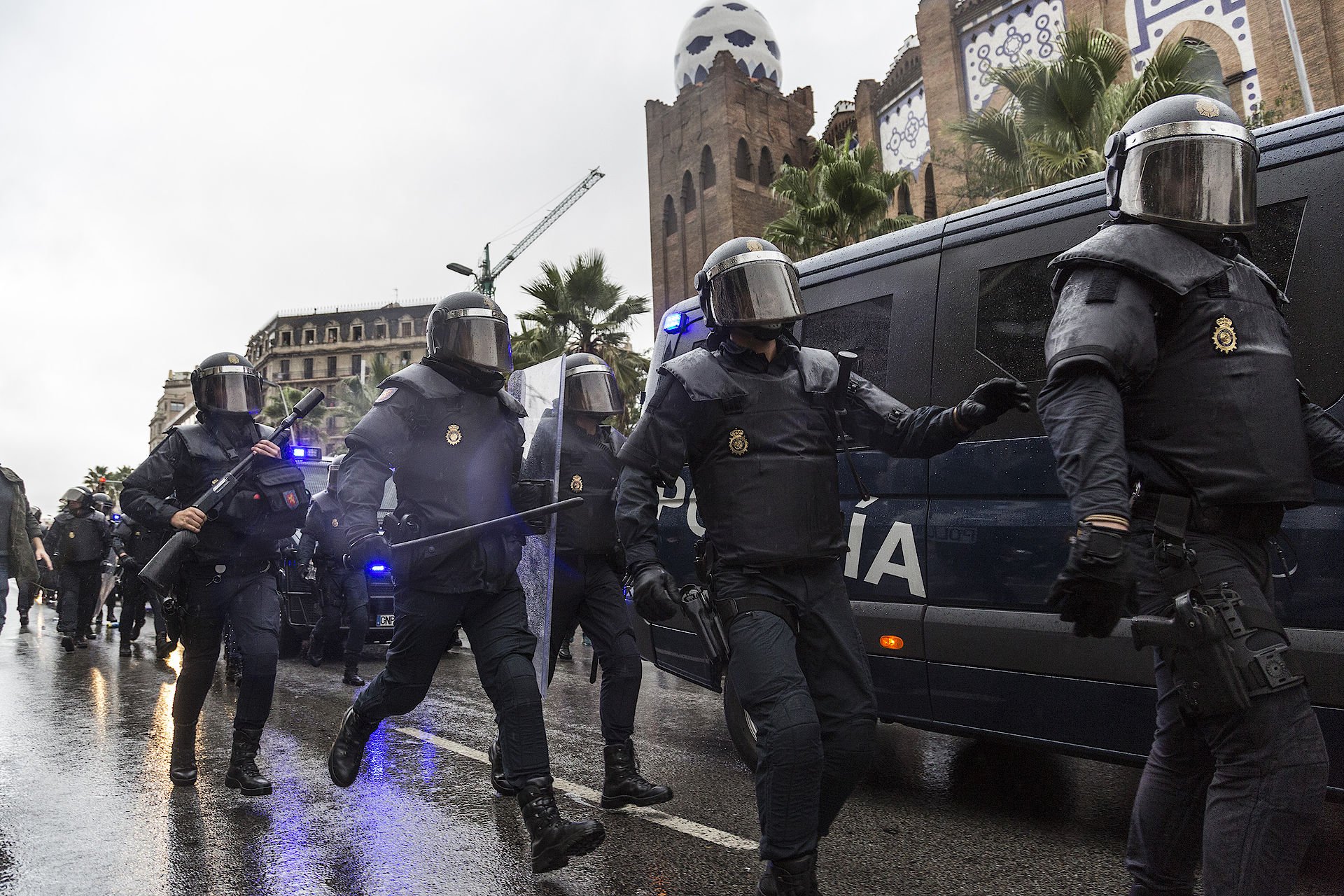The future of democracy is at risk. In the years since the economic crisis that began in 2008, democratic political regimes have undergone considerable setbacks due to the rise of unbridled capitalism and the authoritarianism that accompanies it. It is in this context that indicators aiming to quantify the democratic quality of societies have proliferated as never before, at the same time as they have become a political weapon. Two of the best-known and most-reputed indices are those of the EIU ("Intelligence Unit" of the British business weekly The Economist) and Sweden's V-Dem Institute, which both classify the Spanish state as a "full democracy". Classifications which the Spanish government has quoted, year after year, to counteract the accusations it has received resulting from the repression of the Catalan independence movement since 2017. Now, an academic study, endorsed by 200 professionals and university teachers has shown up serious failings in these indicators.
Originally published in September 2021 in the Revista de Catalunya and presented this Wednesday at the Ateneu Barcelonès, the investigative study entitled 'Prejudice and manipulation under the guise of science: the dubious classification of Spain as a "full democracy" and the weak foundations of the democratic quality indices' (published in Catalan) questions "the use of democracy indices based on compiling subjective opinions, such as those published by The Economist and the V-Dem Institute, to prove, against objective evidence, the classification of Spain as a full democracy". The work bears the signatures of Catalan economists Eduard Gracia, Oriol Martínez, Jaume Pérez, Josep Reyner, David Ros and Lluís Verbon and has received the endorsement of 200 professionals and university professors who "denounce that Spain is classified as a full democracy by different international opinion centres".
An opportunity for political manipulation
The study starts from the observation that both the EIU and the V-Dem measures rate Spain among the most complete democracies in the world, ahead of countries such as France, Belgium, Finland, Ireland, the United Kingdom, the Netherlands, Germany, Iceland and Austria. And in spite of the fact that "several violations of human and civil rights in Spain since 2017 have been repeatedly denounced by a various international institutions" (such as Amnesty International, the United Nations, the Council of Europe…) which "obviously mark a point of discontinuity in the democratic credibility of Spain that any index of reliable democratic quality should reflect with the same fidelity that a seismograph records a seismic wave". How is it possible that they do not? ask the research authors. This is where the failings in the aforementioned indicators begin to come to light.
Both are based on the same methodology, "essentially an opinion poll of experts." Thus, on the one hand, the EIU "does not justify how it controls for the possible biases of the opinions of its anonymous experts." On the other hand, the V-Dem has "very little control over the experts' application of the classification and evaluation criteria", "does not make public the names of the authors who are involved in the preparation of its index", nor does it provide justification of the experts' decisions", something that prevents "the removal of the impact of bias, prejudice or self-interest". The authors of the study then point out that "the ratings become, at best, glorified opinions and, at worst, a fantastic opportunity for manipulation in favour of political or ideological preferences that dominate among the community of experts assigned to a particular country".
The more repression, the higher the score
Looking specifically at Spain, the research focuses on the fact that V-Dem echoed the beginning of the repression of the Catalan independence movement by reducing the score of Spain as a liberal democracy by 8%. But in the following years, despite the increase in repression, the score rose steadily again. Why? This doubt was conveyed to the Swedish institute team, who were unable to provide "any reason". "They relied, without a doubt, on their anonymous experts to provide accurate and consistent scores without bias or prejudice... That, frankly, seems like too much faith," the authors say.
In this regard, the research looks into the idea of political manipulation, which “should be particularly easy to do when the targets are mostly members of a minority in some way considered strange or even rejected by many members of the majority group, as is the case of the Catalans in Spain". And the study thus looks at comparisons generated by the indices, pointing out that "the entire concept of comparisons between countries makes no sense" if there is no guarantee that the evaluations comply with common standardised criteria.

Police at the protest at Barcelona Airport against the sedition sentences for the pro-independence leaders / Sergi Alcazar
The first comparison examined is between Spain and Hungary. When measured by studies of quantifiable criteria (quoting Fariss & Schnakenberg's Level of Human Rights Protection, which is compiled from measures that include numbers of killings, repression incidents and negative international sanctions), Hungary and Spain had the same level of respect for human and civil rights in 2017. But according to the EIU index, Spain was well ahead in democratic quality. This has to do, the new study suggests, with the fact that Hungarian prime minister Viktor Orban was portrayed as a dangerous populist, while the then-Spanish PM Mariano Rajoy was portrayed as a soft ruler aligned with German chancellor Angela Merkel.
The second comparison is with Belgium, which, using the objective data quoted by the authors is far above the Spanish state in terms of human rights. But The Economist places Spain above Belgium despite the fact that the Catalan pro-independence leaders went into exile there in order to avoid being exposed to the abuses of Spanish justice. The study argues that the indices ratings' are due to the fact that Belgium has had long periods without a government (589 days between 2010 and 2011) as well as executives with representation from Flemish pro-independence politicians, while Spain has often had stable, monochromatic governments (the coalition between the PSOE and Unidas Podemos is relatively new).
Subjective bias in the indices
The research concludes by asserting that the objectivity of these indices "is substantially overestimated if their experts cannot even separate the support or disapproval of general measures enacted by certain governments from specific facts related to human and civil rights". It adds that "some of these ratings may be subject to intentional manipulation by certain government agencies, since the scores on these indices generate politically-charged news stories and the teams that produce them only impose very weak controls to avoid undue influence". Thus, "it must be concluded that the numerous recent human rights violations in Spain are simply incompatible with the classification of full democracy that the institutes of democratic quality have so generously bestowed."
The 200 people who have signed a manifesto accompanying the study (which can be consulted on the website of the Maspons i Anglafell collective of legal professionals) note regretfully that, "by adhering to a methodology exposed to subjective biases without imposing effective controls to correct them, these indices add confusion in a field where their original and stated aim is precisely to improve transparency." Finally, they call on The Economist and the V-Dem Institute to introduce more robust controls into their methodologies in order to limit the risk of bias, prejudice and manipulation that today clouds their objective value."
Main image: Spanish police in Barcelona during the 2017 referendum on independence from Spain / Sergi Alcàzar

